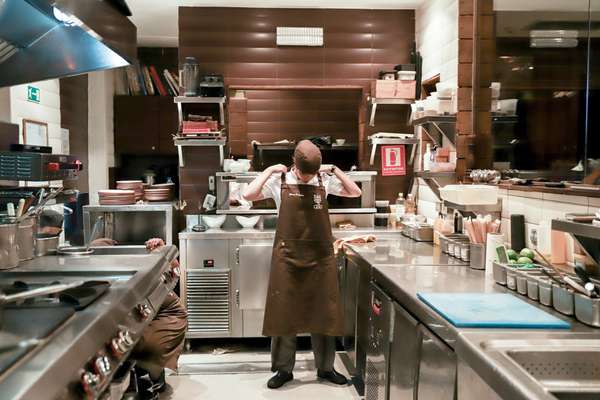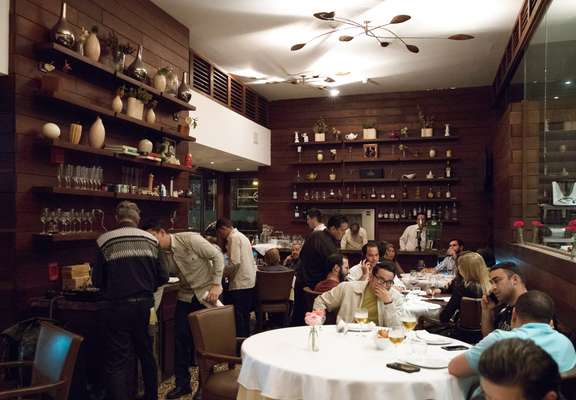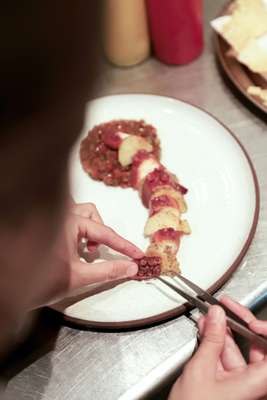Observation 1 / Caracas
Stomach for the fight
In a city blighted by power cuts, rampant inflation and violent crime, Caracas restaurant Alto’s robust and radical operating tactics are paired with a menu of global renown.
It’s Friday lunchtime and table service has just begun. Well-heeled customers dressed in crisp linen jackets and soft suede sandals are sat in a dining room and adjoining garden, chatting over apéritifs and casting a widening eye over the menu. The restaurant, in the upmarket area of Los Palos Grandes at the foot of Caracas’s vast tropical mountain range, hums with lively conversation. Back in the kitchen the scene is as you would find in any high-end establishment: chefs shout to subordinates while waiters and kitchen porters rush around. All is going well – until the lights, fridges and air conditioning cut out.
In Venezuela, power cuts are a feature of daily life. But for restaurateurs they are a minor inconvenience compared with the larger issues of street crime (which has impacted on the number of people heading out to eat) and food prices that double every 26 days or so. Years of mismanagement under the country’s “Bolivarian Revolution” has meant that imports have collapsed by more than a third and the economy has shrunk by 50 per cent in the past five years. But Carlos Garcia, head chef and founder of Alto, has found a way to run a globally recognised restaurant amid the chaos.



As the whir of the air-con fades to silence, Garcia’s team snap into a tested routine. Now they must move everything in the warming kitchen fridges to the cold store out back. The staff form a line, passing vats of butter, exotic fruit and containers of sardines like marines unloading a helicopter in a conflict zone. In minutes all the perishables are safely insulated from the midday heat.
This gung-ho attitude to running a restaurant has kept Alto going for the past 11 years. When the state lets them down, Garcia and his team look to their own means. Whereas “locally sourced” food is a tagline elsewhere in the world, in Venezuela it is the only option. Sous chefs at Alto have been making their own versions of imported condiments and pickles for years. Vegetables come from a local producer known as señora Anna, who runs a small allotment next to a public park. Fish is brought down from the port town of La Guaira and Alto’s pork sandwich is only possible because Garcia knows someone who grazes livestock in their back garden. But scarcity has sparked a revival of national dishes. Alto has had to move away from Mediterranean-style plates and reintroduce Venezuelan classics such as sardine pasta, arepas and guava ceviche.
In such challenging conditions, dedicated, loyal staff are of huge importance to Garcia. “This is my biggest challenge and my greatest source of pride,” he says. Inflation eats at salaries, so the restaurant has introduced programmes in which staff can exchange hours worked for benefits such as English lessons and yoga retreats, as well as barista and sommelier classes.
Back in the restaurant, Garcia and his team have started bringing the food out. Save from the fact that the lights are off, it’s business as usual.


